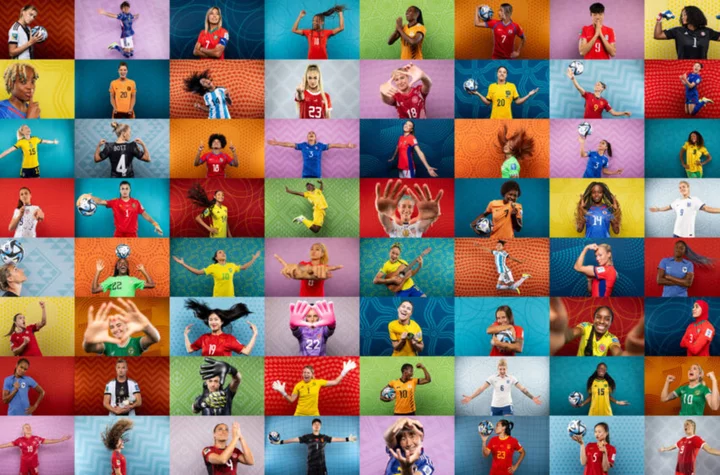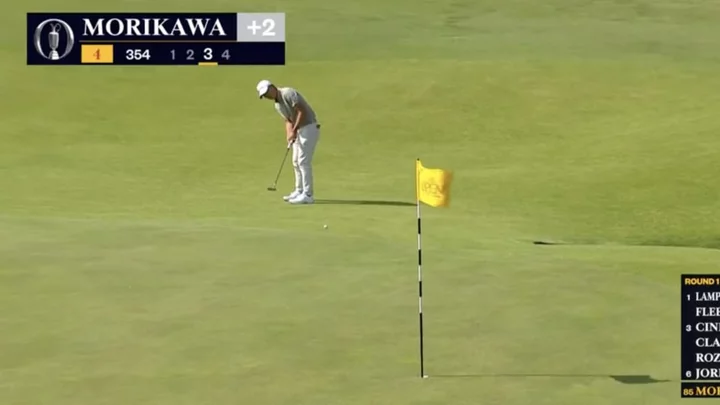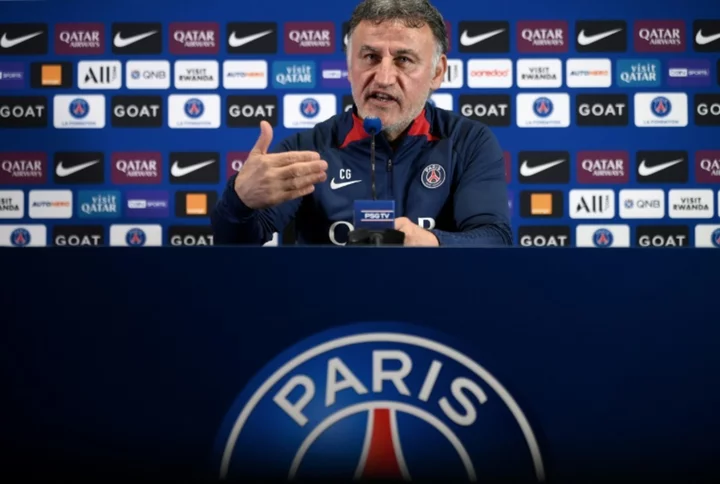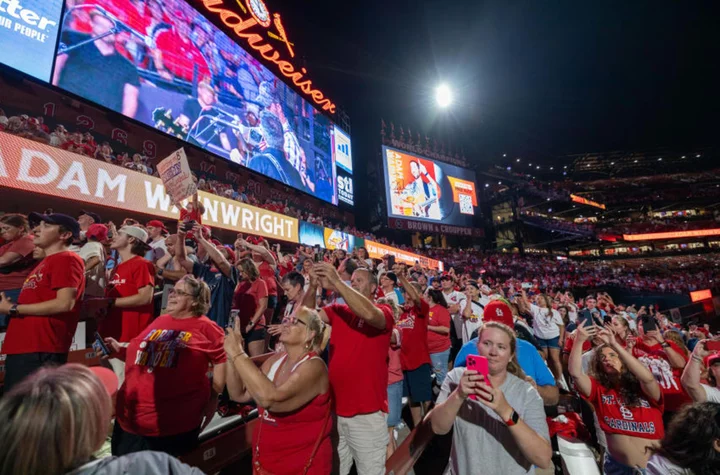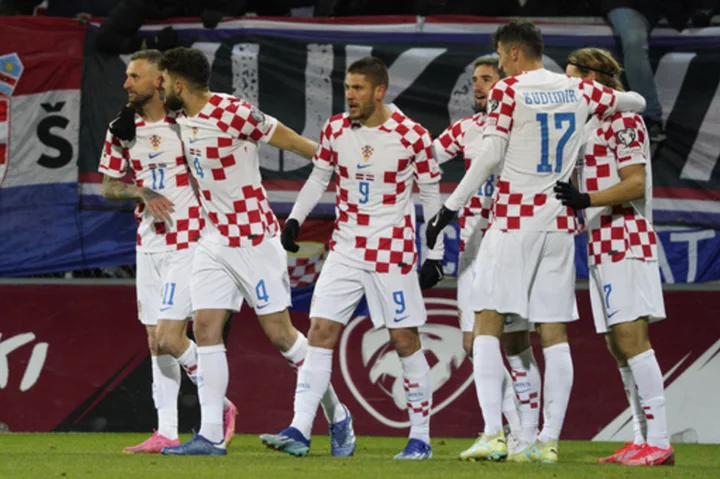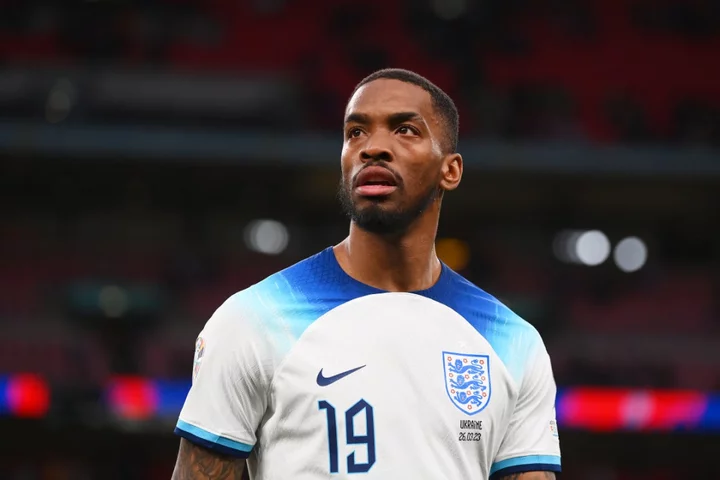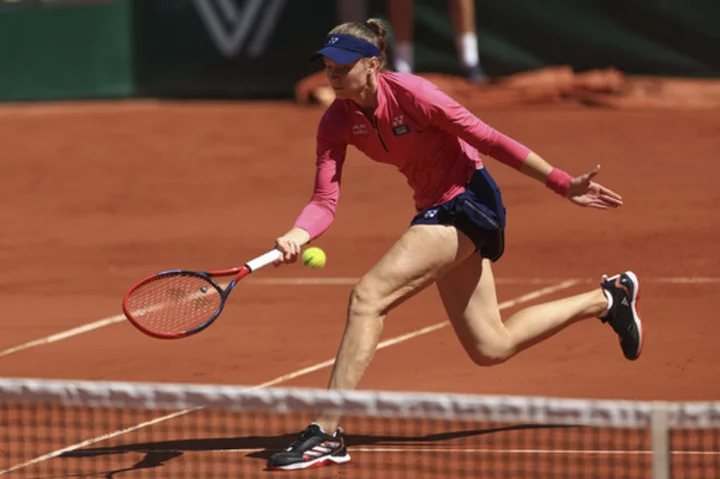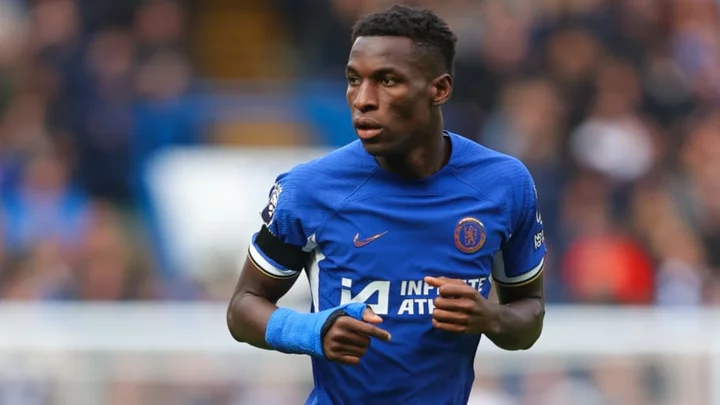Getty Chief Sports Photographer Maddie Meyer gives FanSide an inside look at how they accomplished the incredible official FIFA World Cup portraits, capturing every athlete across all 32 teams and making every player feel special.
This year's Women's World Cup is the biggest tournament ever. With a record number of teams competing, it's easy to forget that teams are made up of individuals. With 32 teams vying for the top spot, that makes over seven hundred athletes. Documenting each player for every country is no easy task, but it's one that Getty Images Chief Sports Photographer Maddie Meyer helped accomplished with flying colors.
This year's official FIFA World Cup Portraits had to include every player and their manager against a specific background tailored to each country, as well as portraits against a neutral background. We got the privilege of asking Maddie about the process, and she gave us a peek behind the curtain at how they achieved this incredible feat.
Thirty-two counties with 23-player rosters sounds like a daunting task to tackle, where did you start in the creative process?
Meyer: Getty Images has photographed every team for FIFA since the 2010 Men's tournament in South Africa and 2011 Women's tournament in Germany so this undertaking isn't new for our team. However, it's more logistically manageable when a tournament is within a smaller country or city. For example, having all of the teams in Qatar for the World Cup in 2022 meant no one had to fly with a lighting kit which was helpful. Knowing that photographers would have to fly for this tournament, and have limited time and space to set up, meant we would need a compact kit that could deliver big results. From there, we worked with what FIFA needed. They required one set up against a grey backdrop from which they could cut out the image of the player for various uses on TV, their site, and social media, etc. and the second setup they left up to us for creative direction.
Overall, 24 photographers captured all 32 teams in just one week, with the shoots being spread across Australia and New Zealand in 10 different cities. Even more challenging, 19 of the teams were photographed over a 48-hour period. Additionally, a team of 16 editors split across Sydney and London helped support making sure over 31,000 images were uploaded onto our site seamlessly. It's a massive undertaking, but completely a team effort!
How far in advance did you start planning?
Meyer: I worked primarily with two of our staff photographers from our team in Asia Pacific — Chief Sports Photographer Cameron Spencer based in Sydney, and Sports Photographer Hannah Peters based in Auckland. We started planning back in February. We needed to be on a strict timeline in order to get the custom fabric backdrops printed, shipped to New Zealand, and have the looks approved by FIFA.
Hannah and Cameron worked together in Sydney with backdrops they had printed to test quality and color likeness and created a lighting setup that would make the players stand out. After the test shoot, they worked to reserve lighting equipment in both countries and put together the portrait "kits" for each pair of photographers flying together. That included the backdrops, stands, lights, and accessories like grey cards and a steamer to remove any wrinkles from the fabric. There were a lot of moving parts, including help from our staff in Australia, New Zealand, the UK, Germany, and the United States.
How did you decide on the colors and patterns for the backgrounds for each country?
Meyer: We worked from the FIFA Tournament patterns because they give a sense of place to the event. After reading that female artists had made aboriginal designs, we loved the idea of giving those more of a spotlight as well. We looked at each team's home kit and chose patterns and colors that would complement the jerseys and skin tones of the athletes. We wanted a unique pattern and color scheme for each team so tried our best to spread the colors and patterns for more variety when used as a group. We spent many hours on Zoom across time zones reviewing color schemes and searching for the newly released Women's World Cup kits for each country.
How long does one of these shoots take?
Meyer: We were given two hours per team, but we arrive up to five hours before the shoot begins to secure the location and set up the backdrop and lights. We must photograph 23 players and the manager. Each subject goes to a video station for television, our plain grey backdrop set up, and the colorful patterned one. Depending on how the team sends the players to us, we may have 30 seconds or up to three minutes per player.
Q: Do the players choose their own poses?
Meyer: For some! There are a few we discussed as a group to get started. We suggest a celebration, pointing to their team's badge on their jersey, or arms crossed. The photographer needs to be able to read each player quickly and decide what they may be up for. This is where our photographers really shined. They were able to bring out some great expressions from the athletes that show off their personalities and relationships with teammates.
Some players want to be more serious, and some are happy to have fun with it and are more playful. I left my laptop open and let the athletes play whatever music suited them (a lot of requests for Burna Boy from both Canada and France!). The most fun photoshoots are those where the players can interact with each other, encouraging each other to yell, jump, react, or be in photos together. We understand some teams have already done several promotional shoots in the lead-up to the event, but I'm thankful for those who bring the energy to ours.
Q: What is the energy like from the players? Do some want to have more input than others or are they mostly along for the ride?
Meyer: It completely varies team to team. Some, you can tell this is the first big photoshoot they've been a part of. They're excited and maybe a little intimidated by the setup. I find these athletes are up for more pose variations than those who have been a part of many photoshoots before, and love having photos with teammates they're on the World Cup journey with. We come across players who know their angles, and what they will and will not do for the camera. All of the athletes are professionals though and understand these pictures will be used for promotion so are along for the ride.
Q: The hyped-up yelling pose is a soccer classic, do the players actually yell in person when they do it for the photos?
Meyer: Yes! Many do. It's far more convincing if they actually yell. Some will start there, and others need a little push. Once one player yells, the others who hear it will often join in when it's their turn.
Q: What was the hardest part about creating these amazing portraits?
Meyer: I think the toughest thing about portrait work is reading your subject quickly and putting them at ease. This can be especially difficult if there is a language barrier. We have to think on our feet. Some players need a little more encouragement to open up, some benefit from a teammate teasing them from beside the photographer, and some you know if you push too far, they'll walk off the set. Finding that balance is tricky but as I said, I think all of the photographers involved did a fantastic job – the images speak for themselves.
Q: Germany's Koala has become an internet sensation, I see that it even made it into some photos, do you happen to have any more insight on it? Did the players suggest taking photos with it?
Meyer: I've seen the Koala around, but I didn't photograph Team Germany during the portrait shoot. Getty Images FIFA Photographer Matt King said during the portrait session with Germany that Alexandra Popp, one of the team's best players, was posing with the Koala and having fun with it. He couldn't remember who suggested posing with it, but Popp was happy to do it. The Koala has been spotted during matches as well.
The incredible efforts of the Getty photographers can be seen in promotional materials, merchandise, or even on your television screen from wherever in the world you're watching this tournament. With the players being the heart of this sport, these portraits are more important than ever, and we'd like to thank Getty Images and Maddie for their time and amazing insight into this process.

